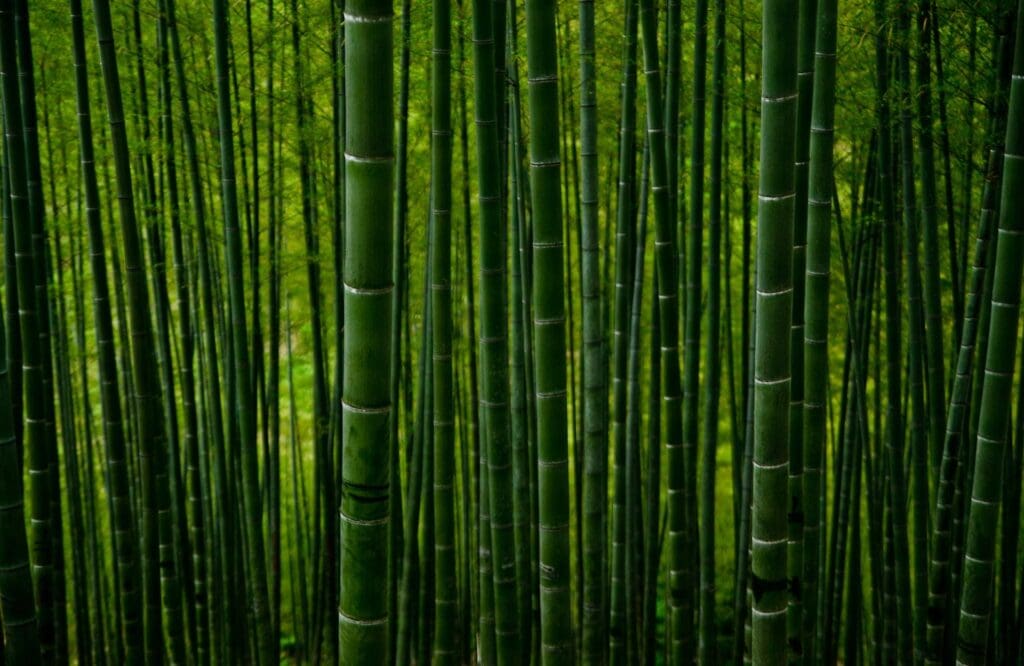Introduction
In this article, we explore the bamboo forests of Anji in China and its potential to generate income beyond traditional uses. Did you know that the air within bamboo forests can be a valuable commodity?
Bamboo: A Versatile Wonder
Bamboo is a remarkable plant known for its versatility. Not only is it edible, but it can also be transformed into an array of products, including baskets, chairs, clothing and even building materials. However, the economic potential of bamboo extends far beyond its tangible applications. In Anji, a region with a rich history of bamboo forests, a groundbreaking idea has emerged – selling the air within these majestic groves.
Anji: The Bamboo Township
Anji, located in Zhejiang Province, has been renowned as the “bamboo township” for centuries. Its sprawling bamboo forests stretch back thousands of years, creating a dense canopy that allows only filtered sunlight to penetrate the forest floor. From above, the mountains of Anji resemble plush green carpets that seem to stretch indefinitely. It is within this enchanting landscape that a new economic opportunity has emerged for bamboo forest owners.
The Air Loan Concept
Yang Zhongyong, a native of Anji, has been a prominent bamboo forest contractor since 1995. However, this year posed challenges for him as typhoons and flash floods wreaked havoc on the forest roads. Repairing the damage would cost at least 200,000 yuan, a significant financial burden. Just when Yang was contemplating how to fund the repairs, a unique solution presented itself.

Yang’s local bank introduced him to a novel concept – using the air in his bamboo forest as collateral for a loan. At first, Yang was skeptical, as it was the first time he had heard of such a concept. However, the bank’s assessment of the carbon emission reduction potential of Yang’s contracted bamboo forest revealed that it could provide him with a loan of 371,900 yuan. This amount exceeded his initial estimate for the road repairs, providing him with the necessary funds to restore the forest infrastructure.
Understanding Carbon Sink and Carbon Neutrality
To comprehend how the air in the bamboo forest becomes a tradable commodity, we must explore the concept of a carbon sink. A carbon sink refers to the process of absorbing atmospheric carbon dioxide through measures such as afforestation and vegetation restoration. By purchasing carbon sink targets, polluters can achieve carbon neutrality and gain a buffer period for reducing emissions.
Individuals who own carbon sinks, such as bamboo forest owners like Yang, can generate income by selling their carbon sink credits. Since the launch of the national carbon market in China, bamboo forests and the air within them have become tradable commodities.
Pioneering Research and Carbon Sink Calculation
Transforming the unseen and intangible air within a bamboo forest into a marketable carbon sink asset is a complex task. It necessitates a scientifically robust, quantifiable, and universally accepted standard. Hence, Shi Yongjun and his team from Zhejiang Agriculture and Forestry University embarked on this research journey in 2002. They set up the world’s inaugural bamboo forest flux tower, which carried out non-stop observations for a decade.
From individual bamboo leaves to the entire bamboo forest, they gathered comprehensive data, encompassing the growth value of the bamboo forest and the tracking of carbon dioxide emissions. By collecting and scrutinizing this information, they were ultimately able to determine the carbon sink capacity of each mu (approximately 0.66 hectares) of bamboo forest.
The Future of Bamboo Forest Carbon Sink Industry
The success of the bamboo forest carbon sink transaction and the issuance of the first bamboo forest carbon sink pledge loan signify a significant milestone. Wang Jingxin, a professor at Zhejiang University, emphasizes that bamboo is a sustainable plant resource and a constant source of green wealth. The innovative practice of combining quality, sink enhancement, and income generation has paved the way for the monetization of bamboo forest carbon sinks, creating an entirely new industry.
As the national carbon market continues to evolve and gain traction, the cumulative turnover has already exceeded 800 million yuan. With ongoing improvements to mechanisms and increasing buy-in at the local level, China’s carbon market holds immense promise for the future.
Conclusion: Unleashing Bamboo’s Economic Potential
The economic potential of bamboo forests extends beyond conventional uses, thanks to the groundbreaking concept of selling air. Anji’s bamboo forest owners, like Yang Zhongyong, have discovered new avenues for generating income while contributing to environmental sustainability. By embracing the power of carbon sinks and the opportunities they present, bamboo forest operators are ushering in a new era of prosperity.

